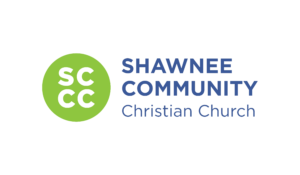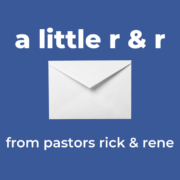a little r & r

There is a song by composers Richard Avery and Donald Marsh titled “I Can Be a Christian by Myself.” Its lyrics go like this:
I can be a Christian by myself.
Leave my dusty Bible on the shelf.
I’ll sing a song and pray a bit.
God can do the rest of it.
My heart’s the church, my head’s the people
Open the door and I’m the people.
I can be a Christian by myself.
Curiously, Avery and Marsh wrote this little ditty long before the “Me Generation,” first identified with us Boomers and succeeding generations, repudiated organized religion and institutions of any kind in large numbers. Avery and Marsh wrote the song only as more Americans—and long after Europeans—started leaving the church in droves.
Many people across the western world have misinterpreted their dropping out of church as an act of exercising their First Amendment right of “freedom of religion” as if the amendment meant they were exercising their “freedom from religion.” (The amendment actually has to do with preventing any one religion, denomination, or church from imposing its will on any issue thereby seeking intentionally or unintentionally to establish itself as the nation’s only religion.)
Kansas native and Franciscan priest and teacher Richard Rohr describes this misunderstanding of freedom in his book of Daily Meditations titled “Yes, And…”
Jesus’s notion of the reign of God has a different understanding of freedom than that of
most religious and secular leaders today. We think of freedom as not having to do
what we don’t want to do, but divine freedom is the capacity to be fully who we
already are, to develop our inherent and true nature as much as possible—really
wanting to do what we have to do. Only God can create that freedom inside us. Love
can only proceed from such inner freedom.
Rohr goes on to say that a mustard seed, yeast and light all develop from within, suggesting that from a biblical perspective (Ephesians 2:7-10 & Galatians 5:1) freedom and grace are essentially the same thing. Then Rohr adds,
Secular freedom only creates individualists and private freedom, but not a society. It
never gets around to the common good, which is a central principle of the Gospel,
which demands from us and demands for others—while ironically giving us all that we
really need. Then we become who we most deeply and truly are: members of a
family, a neighborhood, a society, and a planet. If we are trying to “go to heaven”
alone or on our own merits, we are preparing for a place other than heaven.
Rohr captures the difference in the interpretation of freedom between Jesus’s understanding of the word in the context of the reign of God and many, if not most, secular and religious leaders’ understanding.
But ever the gentle Franciscan, Rohr’s comment doesn’t have the bite of a statement on freedom found on Facebook, though it is still worth noting: “Insisting on your own rights without acknowledging your responsibilities isn’t freedom, it’s adolescence.” Or as historian Christopher Lasch asks in his book The Culture of Narcissim, “Will America grow up before it grows old?” In all fairness, I’ve known a lot of adolescents who are far more spiritually mature than many adults.
Avery and Marsh decades ago were prescient in identifying the kind of exclusivist narcissism that was starting to build among many American Christians. I suspect if they were writing a second, similar song today they would title it “I Can Be an American by Myself.” A lot of American schools have left our Constitution on the shelf foregoing requirements for civics classes in high school. Many of us have surrendered any democratic (small “d”) responsibility to be informed citizens of this amazing country of ours. Many of us have surrendered any spiritual responsibility for our own spiritual growth by developing a regular routine of worship, meditation, and Christian action.
The consequences have been devastating and only made worse by the individualistic cocooning the pandemic has stirred among us. Major among these consequences is the loneliness that was building well before Covid hit. The justifiable need for practicing masking, social distancing, and sheltering-in-place have only exacerbated the isolation and depression so many people feel. But these necessary cautionary practices have also helped reinforce people’s misconception of freedom as freedom to do what we please than freedom to be responsible for one another. Whether to get vaccinated or not has become the flashpoint for misunderstanding the true nature of freedom and its exercise.
So, are we stuck in an immature ego-state of thinking freedom is only about me, me, me and what I/we want?
Avery and Marsh imply and Rohr maintains that God’s Spirit actively calls out to each of us to choose the freedom and happiness that comes by being responsible disciples of Christ.
God’s voice keeps calling to us “Come to me all you who are heavy-laden, and I will give you rest. For my yoke is easy and my burden is light.” Implicit in Jesus’ statement is his understanding that discipleship—a yoke he shares—means exercising responsibility not anarchy.
Compared to the burdens of our times, so many false prophets exploit, Jesus’s burden is nothing. Jesus’s way is the way to freedom. Jesus’s way is the way to true community and friendship. Jesus’s way is the way not only to heaven but also to a new earth.
This is the reason Jesus says, “I am the way, the truth, and the life.” Because being free to exercise Jesus’ way, is the way to true freedom and the kind of true peace we all so desperately long for.
Blessings!
Rick



